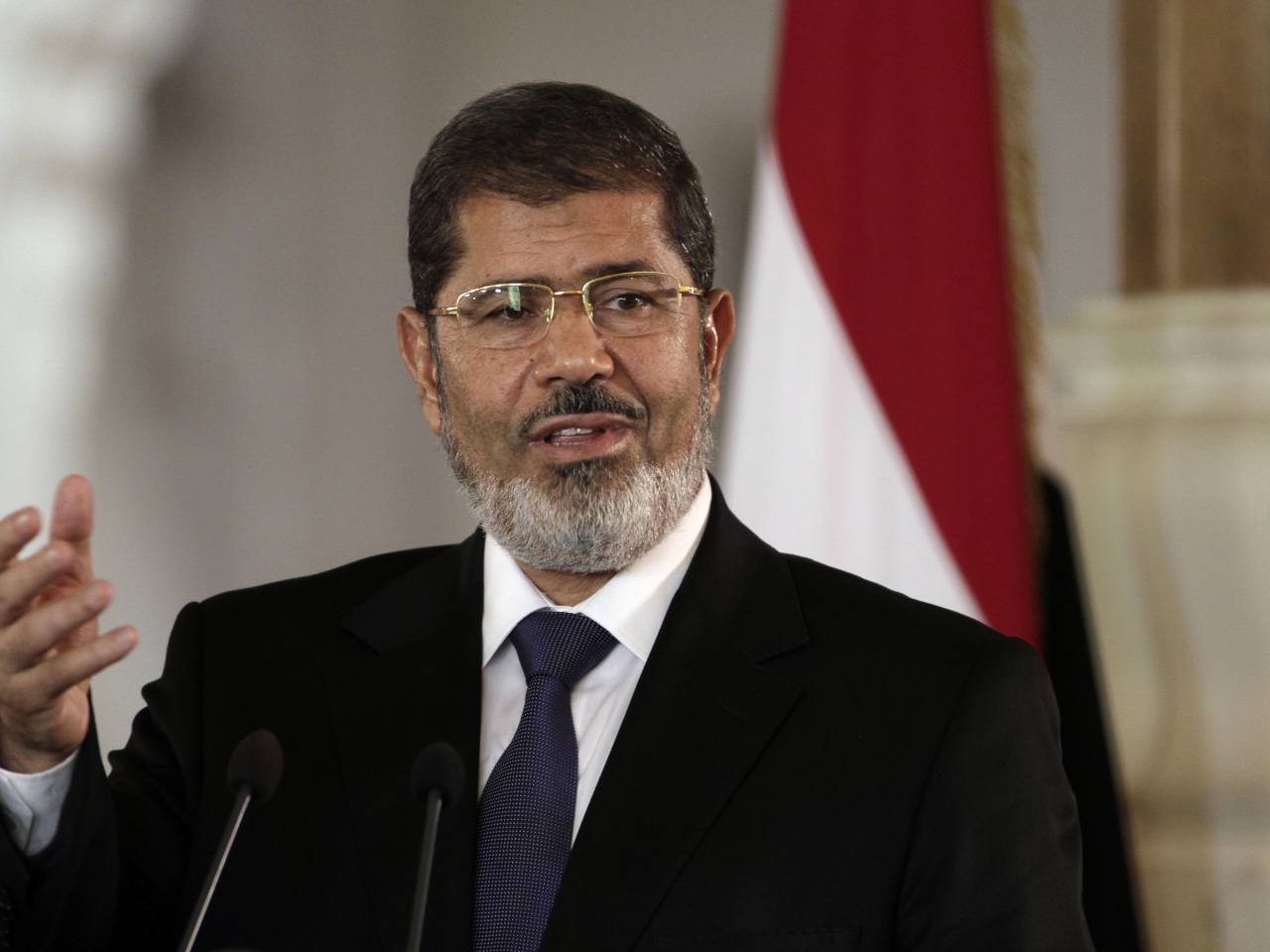Morsi was not a revolutionary figure. He did not express the soul of Egypt. The defeat of his administration first came in the court of public opinion, so it cannot be attributed solely to actions taken by the military.
"Islamic revivalism in Egypt, then, was counterbalanced and tempered from its inception by the ascendant forces of liberalism and nationalism, which steered the country on a modern path, starting with Muhammad Ali and continuing during the British rule (1882-1922) and after independence under the monarchy. The monarchic period (1922-1952) ushered in liberal constitutionalism and nationalism, led by a Western-oriented liberal elite. The emphasis was on building an integrated modern national community. Revolutionary nationalism and socialism followed in the post-1952 revolution under Gamal Abdul Nasser, with its emphasis on populism and Arab radicalism. Anwar Sadat (1970-1981) shifted toward a more open and liberalized economic and political direction, leading to free entrepreneurial activity and limited democratization---which has continued, albeit slowly, under Hosni Mubarak. Throughout, all attempts by various Islamic groups to change the course of the Egyptian state proved to be unavailing." - Mahmud A. Faksh, "The Future of Islam in the Middle East: Fundamentalism in Egypt, Algeria, and Saudi Arabia." 1997. Praeger Publishers. Pg. 43.The Muslim Brotherhood's aim of transforming Egyptian society based on Islamic principles and radically changing its posture in the region, such as breaking off diplomatic relations with Syria, were unsuccessful for obvious reasons. These policies went against the history, convictions, and beliefs of the Egyptian people, and especially the secular values of the Egyptian youth. The revolution of 2011 was not an Islamic revolution. Muslim Brotherhood members were hardly visible in the original protests and confrontations against Mubarak's regime.
Since there is no force of nature currently in Egypt like a Khomeini who can pull together the different factions of Egyptian society in this crisis and impose his will on the country, it is hard to see any kind of political and military stability in both the near future as well as long-term.
At this point, it is impossible that Egypt will repeat Iran's experience in 1979, and fulfill the Islamic Republic's narrative that there is an "Islamic awakening" in the region. The facts do not bear this out. There are no revolutionary priests in Egypt, as there are in Iran, who can rule the country with an iron fist, which is the only way that an Islamic revolution and state can succeed in this day and age.
The only institution in Egypt that has a permanent role in society does not want to mix religion with the state. The Egyptian army's will to defeat militant Salafist groups in the Sinai region and other areas around the country is unwavering. Plus, it still has plenty of popular support, so any Islamic insurgency is bound to fail.
The Muslim Brotherhood and other Islamist groups will remain a thorn as long as they use violence, but Egyptian society has already rejected these radical forces so victory will elude them no matter how long they continue to wage their Jihad against the Egyptian state.
The historic issue of Palestine has not galvanized the different forces of the society around a common struggle and enemy. Putting their differences aside in order to wage a greater struggle has not entered the minds of the revolutionary factions, both secular and religious. Egypt's face is turned toward its explosive economic crisis and internal political divisions, not the struggle to save Palestine and recapture Jerusalem.
Of course, there is general sympathy for the suffering of Palestinians, but there is also indifference, and even growing hatred in some quarters. And much of that hatred is understandable because sections within Palestine and the Palestinian diaspora have interfered in Egyptian politics by siding with Morsi.
Proud and patriotic Egyptians have raised their voices in condemnation of Palestinian support for Morsi and the Muslim Brotherhood. But it needs to be noted that many Palestinians take a position of non-interference in Egypt and all Arab countries, as stated in this article called, "Palestinians Criticize Raising Morsi’s Picture at Al-Aqsa."
It is hard to be hopeful about the future of Egypt, and the region as a whole, but recent events are encouraging. Removing the divisive, xenophobic, and warmongering Muslim Brotherhood from power was a continuation of the revolution that is driven by the energy and enthusiasm of the young people. The Egyptian people are intelligent, politically knowledgeable, and fully capable of avoiding a costly civil war.
But, it is foolish to make any predictions and say which way the country will go in the future. As it is always the case in periods of change and crisis, opinions can change, armies can fall, leaders can emerge, new movements can arise, and countries can unravel quicker than it is generally assumed.
